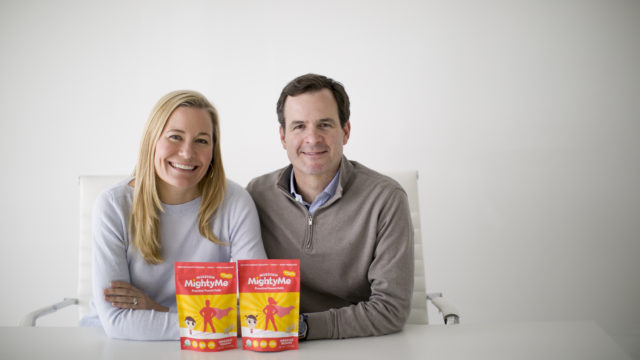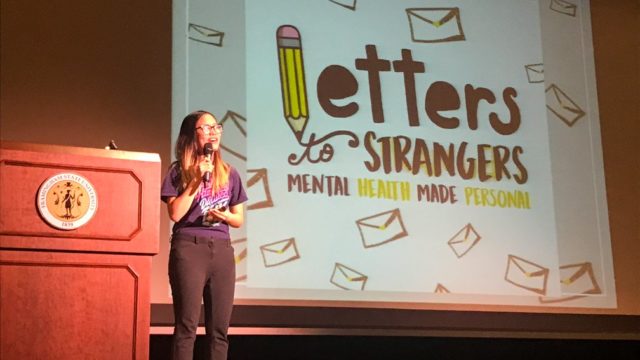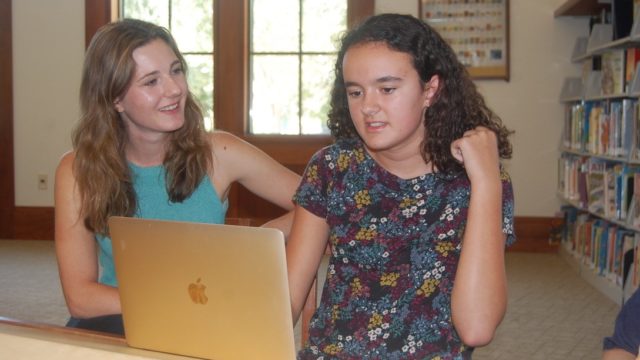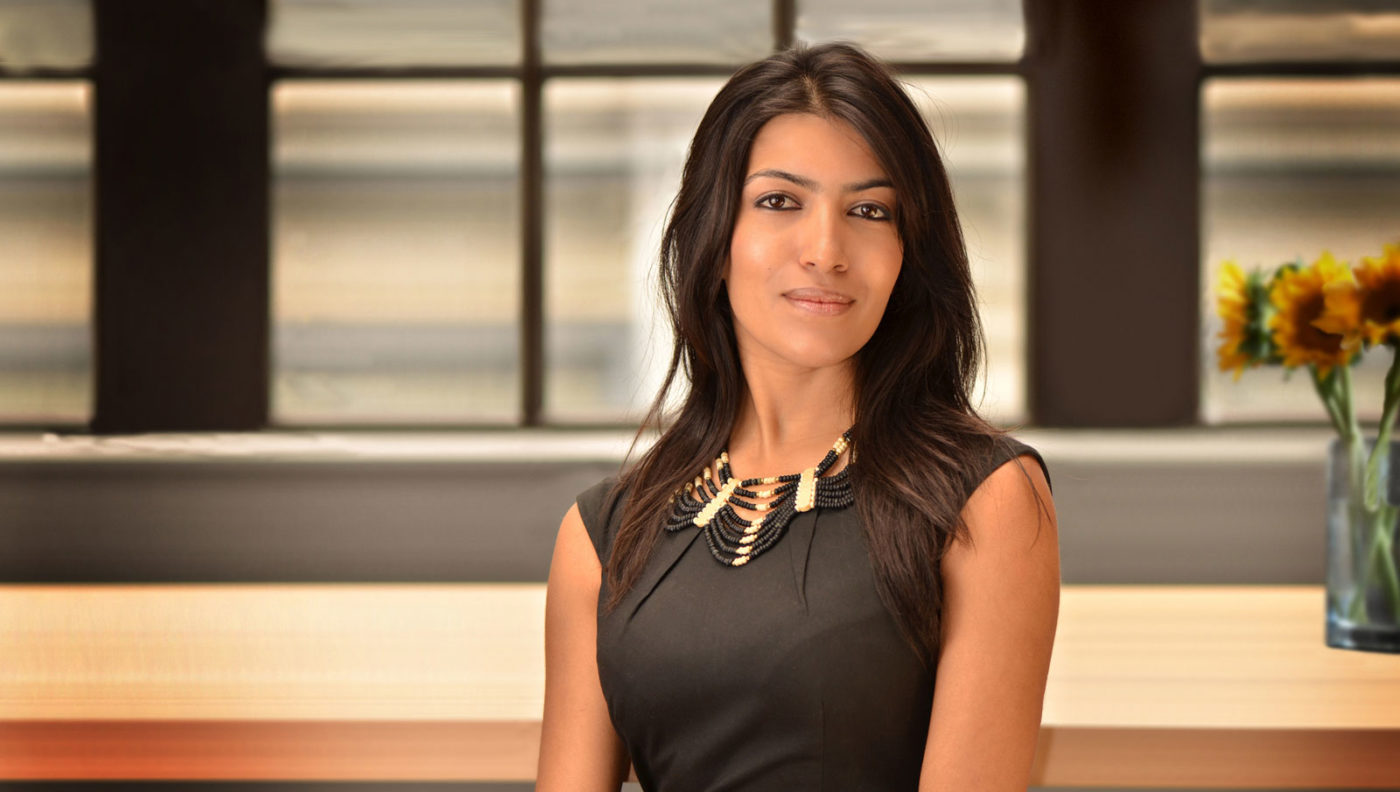
Relentlessly Striving to Give Everyone a Fair Chance
In Sanskrit, the word, “sama,” means “equal” and it’s a fitting prefix for the three organizations Leila Janah has founded: Samasource, Samahope and SamaUSA. She even has “sama” tattooed on her wrist as a persistent reminder of what she feels she was put on the earth to do: create a more level playing field that gives everyone a chance.
“Eighty percent of humanity does not have a fair shot,” she explains. “It’s our job as a human species to make the set of opportunities more equal.”
Leila’s passion for social justice began at an early age. In high school at the California Academy of Math & Science, she started a local chapter of Amnesty International, organized the school’s first debate about international issues and worked with the American Civil Liberties Union (ACLU) to promote equity in educational funding. After graduating early at the age of 17, she used a scholarship to fund a trip to Ghana where she volunteered as an English teacher. Her six months in Ghana gave her deep exposure to some of the world’s most extreme poverty and solidified the focus that would fuel her life’s work from then on.
While in Ghana, she received her invitation to the Coca-Cola Scholarship finalists’ weekend in a way she will never forget. “My FedEx package arrived in the hands of a barefoot boy from one of the local villages,” she remembers. “How he got it, and knew it was for me, I’ll never know. The address had only my name, the name of the town and Ghana on it. Since I was the only foreigner for miles, I guess he figured it must be for me.”
Leila used her Coca-Cola Scholarship to help fund her education at Harvard, where she worked three jobs to make ends meet. The strength, energy and determination she drew on to finance her education prepared her for what she would need to start a non-profit organization.
The business model she created at Samasource connects women and youth living in poverty to dignified work via the Internet. Using proprietary technology, the digital work is broken down into small tasks, or microwork, that can be completed by those who have basic English skills and access to a computer along with a few weeks of training.
“Millions of people live on less than $3 a day,” Leila points out. “When I was in Ghana, I found that people would rather work than receive traditional aid, but jobs are scarce and those that are available are terrible and don’t take advantage of their skills. Women and youth who are literate and live in an area where there’s electricity can connect to computers and accomplish tasks, such as transcribing, tagging and data-mining content, that will help lift them and their families out of poverty.”
Watch Leila speak at TEDx Brussels:
Launching Samasource in 2008, she faced formidable obstacles, including the stock market crash that September. Finding donations, even small ones, was difficult. She also faced skepticism about whether her model would work, since its emphasis was not on providing services, which was the traditional way to deal with poverty. And, she had the challenge of convincing the best people in the industry to quit lucrative jobs to move into a position with no equity and far less pay.
“I had to take on outside jobs, like being an SAT tutor, and I gave up my apartment and slept on a friend’s couch,” she recalls. “It was incredibly hard to see my friends in Silicon Valley buying mansions. But, I pounded the pavement and over time, companies started to come around. The major development organizations also started to take our ideas seriously.”
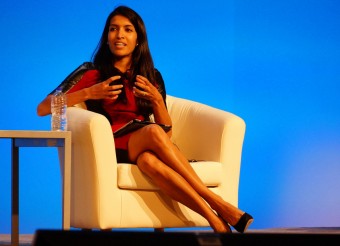 Her resolve paid off and in 2012 Samasource raised $7 million that allowed investments in growth. To date, Samasource has trained and paid 3,200 workers, enabling 15,000 people to permanently move out of poverty. Samasource has also brought in new clients, including Google, Microsoft and Getty Images.
Her resolve paid off and in 2012 Samasource raised $7 million that allowed investments in growth. To date, Samasource has trained and paid 3,200 workers, enabling 15,000 people to permanently move out of poverty. Samasource has also brought in new clients, including Google, Microsoft and Getty Images.
Accompanying this growth, Leila spun out Samahope, which is a separate initiative that provides funding for lifesaving surgeries for women and children who cannot afford them. These simple surgeries include cleft palette repair and burn injury treatment.
She also piloted her latest program, SamaUSA, in 2012 and it is scheduled to launch in San Francisco in January 2013. “Most of the work we do is international, but here at home, we live in a scary time with the highest rate of income inequality since before the Great Depression,” she notes. “SamaUSA will try to level the playing field within our own borders and I’d love to have Coca-Cola Scholars involved.”
Referring to her Scholar peers, she says, “It’s a powerful, connected community that will produce the next generation of leading CEOs, politicians, environmentalists and activists. I believe the people who will truly drive the change we need will come from this group.”
Watch Leila speak at TEDx Silicon Valley and at the Clinton Global Initiative 2010
More about Leila can be found at her website.
Photo above courtesy of Stephen Foskett via flickr


